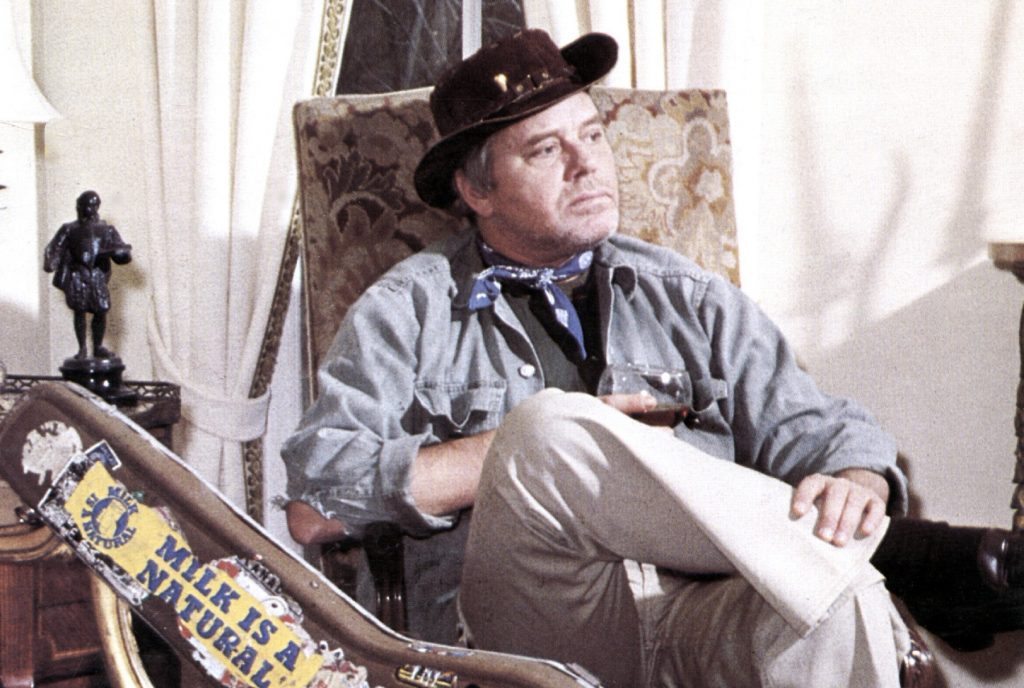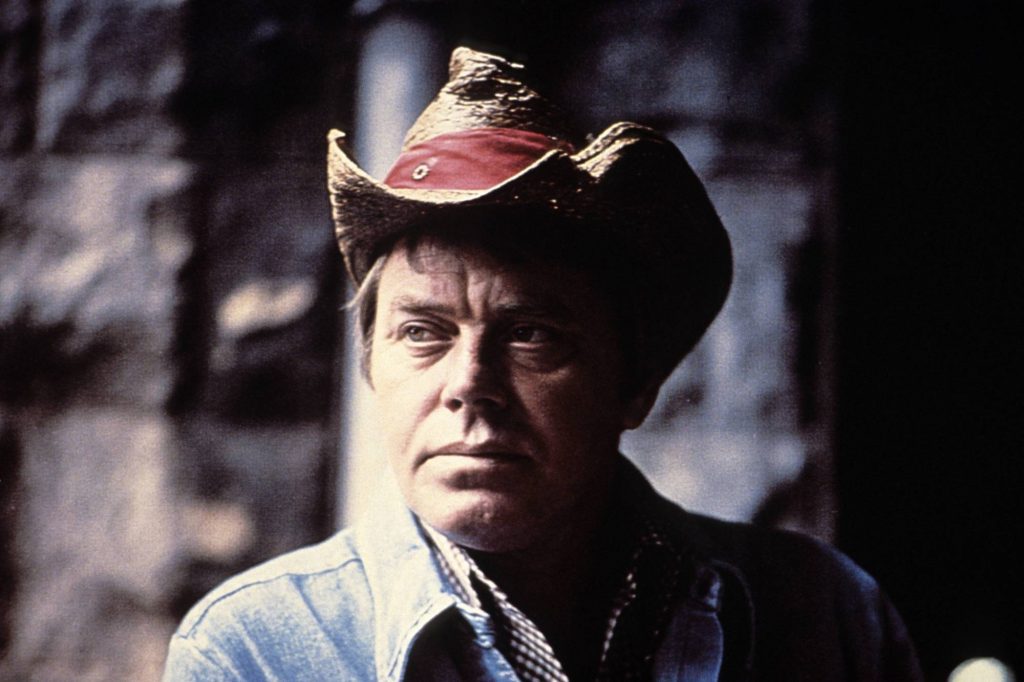
Tom T. Hall: 10 Essential Songs
Tom T. Hall’s songwriting was as easygoing as his own demeanor. To listen to a Hall composition — whether he was the one singing it or artists like Jeannie C. Riley and Alan Jackson — was akin to hearing a story told by a friend you bumped into on the corner. While many of today’s country artists like to sing about the small-town existence, Hall brought it to life in vivid color. Sometimes it made your heart ache, other times it made you smile. These are 10 of his best.
“That’s How I Got to Memphis”
In Hall’s 1969 story-song, the narrator recounts, in rich detail, how he arrived in Memphis, Tennessee. The short answer? An undying love. “If you tell me she’s not here, I’ll follow the trail of her tears,” Hall (and Bobby Bare, who covered it in 1970) sang in this track off his album Ballad of Forty Dollars. That trail led the songwriter all the way to the banks of the Mississippi, arriving hungry and exhausted, but committed. “I haven’t eaten a bite or slept for three days and nights,” he says. But Hall isn’t complaining. He’s just spelling out his dedication in simple, human language.
“(Old Dogs, Children And) Watermelon Wine”
Hall overheard, wrote, recorded and released this recitation all in the same year: “(Old Dogs, Children And) Watermelon Wine” appears on 1972’s The Storyteller and remains one of Hall’s most memorable songs. The observational songwriter was in Miami for the Democratic National Convention that year when he encountered a 65-year-old janitor willing to spill the secrets of a happy life. They were simply, as the title points out, dogs, kids and the homemade brew — the only three things “worth a solitary dime.” No less than John Prine agreed: He covered the tune in 2007 for an album with Mac Wiseman.
blogherads.adq.push(function () {
blogherads
.defineSlot( ‘medrec’, ‘gpt-dsk-tab-country-article-inbody1-uid0’ )
.setTargeting( ‘pos’, [“mid-article”,”mid”,”in-article1″,”btf”] )
.setSubAdUnitPath(“music//country//article//inbody1”)
.addSize([[300,250],[620,350],[2,2],[3,3],[2,4],[4,2]])
;
});
“I Like Beer”
Recorded for Hall’s 1975 LP I Wrote a Song About It, “I Like Beer” is the type of tune you sing arm-in-arm with friends. While at the bar? Even better. The sing-songy nature of the track makes it a nursery rhyme of sorts — for those of drinking age. “Roll out the barrel and lend me your ears,” Hall implores his listeners. Why? Because beer “makes me a jolly good fellow.” It also helps him unwind and makes him feel mellow, he claims. “I Like Beer” may be Hall’s sly observation on the workingman’s beverage, but it sure sounds like a commercial too. Michelob thought so: The beer giant had mainstream country star Jon Pardi cut a version of the song for their Super Bowl LII commercial.
“Me and Jesus”
Hall’s 1972 single “Me and Jesus” eschewed pious evangelizing for a more personal vision of faith: “Me and Jesus got our own thing going/We don’t need anybody to tell us what it’s all about,” he sang, accompanied by a buoyant hand-clapping rhythm and lively barroom piano. Like so many of Hall’s memorable characters, Jesus seems like a regular guy who understands the problems of regular people, no “fancy preachin’” required.
“Harper Valley P.T.A.” (Jeannie C. Riley)
Hall’s most famous song was, like much of his work, inspired by a real-life woman in his Kentucky town who refused to conform to expectations. “The lady was a really free spirit, modern way beyond the times in my hometown,” Hall told CMT. “They got really huffy about her lifestyle. She took umbrage at that and went down and made a speech to them. I mean, here’s this ordinary woman taking on the aristocracy of Olive Hill, Ky., population 1,300.” Jeannie C. Riley brought the story to life in 1968 as her debut single, becoming the first woman to top Billboard’s Hot 100 and Country charts simultaneously.
“Little Bitty” (Alan Jackson)
In 1996, Hall released the album Songs From Sopchoppy, inspired by a Florida panhandle town where he spent time. Among the tracks was “Little Bitty,” about the seemingly tiny individual lives and deeds that all add up to one massive whole. “Might as while share, might as well smile/Life goes on for a little bitty while.” “I got that song out of the drawer and looked at it — and no last verse. I said, ‘Well, after two years, I know how this thing ends. The way it started!’ It starts all over again. It’s a cyclical song,” Hall told CMT. Alan Jackson, who primarily wrote his own material, liked it so much that he recorded a version and took it to Number One the same year.
“Homecoming”
Anyone who has ever struck out on their own path — perhaps against their parents’ wishes — knows what Hall was getting at in “Homecoming.” In this case, the narrator is a music man struggling to carve out a career who makes that most frightening of trips: a visit to his hometown. Only his father is alive these days, but he still feels the need for his approval, explaining in great detail how, well, he had just played a gig in San Antonio the night before and, you see, his guitar player, a woman asleep in the car, drove him straight there. “It’s about a son who comes home and tries to explain himself to his father,” Hall told CMT. “When you come home, it’s hard to explain what you’re doing.” But fans and fellow wanders sure understood.
“I Love”
Hall occasionally went away from narratives to do list-style songs, but those were also great. 1973’s “I Love,” which appeared on For the People in the Last Hard Town as well as on the children’s album Songs of Fox Hollow, is an endearingly sweet accounting of the many things he loves: little country streams, sleep without dreams, birds of the world, tomatoes on the vine, and so on. Charming, almost tangible little images that Hall rolls in with one other crucially important thing he loves: you.
“The Year That Clayton Delaney Died”
The titular Clayton Delaney was the best guitar picker in Hall’s town, drank way too much, and suffered miserably during the final two weeks of his life. Or did he? Hall told CMT in 2005 that Delaney was really a fellow named Lonnie Easterly whom he encountered while searching for lyrical inspiration. “I’d get in my car and drive through small town America and stop off at little cafes and pool halls, to look and listen. I got a lot of songs that way,” Hall said. As for Delaney, the man’s real name was Lonnie Easterly, whom Hall renamed by pairing Easterly’s hometown with the surname of his next-door neighbors. The result is both an undeniable story-song and a Tom T. Hall classic.
“A Week in a Country Jail”
Hall scored his first Number One as a recording artist with the 1969 single “ A Week in a Country Jail,” which is a surprisingly upbeat song about being locked up for speeding, of all things. Hall’s protagonist makes the mistake of calling his boss instead of someone who will come bail him out, then dines on “hot bologna, eggs, and gravy” brought in by the jailer’s wife while he waits for the return of the local judge. He should be annoyed, but he sings it cheerfully, like he knows he’ll have a good story to tell one day.
blogherads.adq.push(function () {
blogherads
.defineSlot( ‘medrec’, ‘gpt-dsk-tab-country-article-inbody2-uid1’ )
.setTargeting( ‘pos’, [“mid-article”,”mid”,”in-article2″,”btf”] )
.setSubAdUnitPath(“music//country//article//inbody2”)
.addSize([[300,250],[300,251],[620,350],[2,4],[4,2]])
.setLazyLoadMultiplier(2)
;
});




